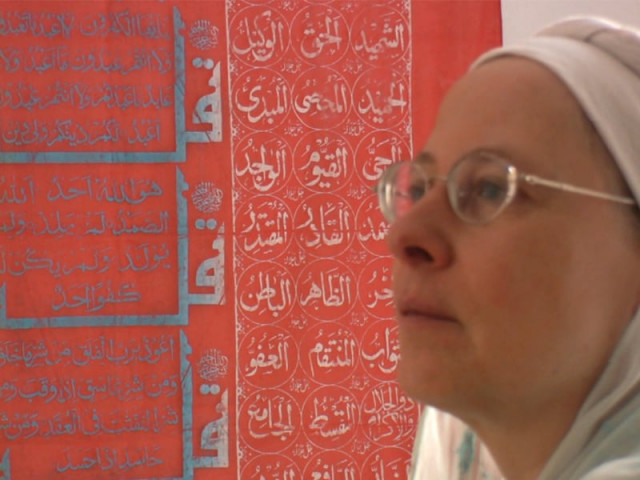Dazwischen: Malaysian journalist unravels the conflicts surrounding Muslim identity in Germany
The hour-long documentary was screened for the first time in Pakistan.

Journalist Subir Che Selia’s documentary debut, ‘Dazwischen’ (In between), looks into what Muslim migrants in Germany identify with. It revolves around four young Muslim - their memories, anxieties and how they survive in Berlin as a religious minority. “When I arrived in Germany, I felt that living in a foreign country was a challenge,” said the 31-year-old Malaysian born journalist while talking to The Express Tribune about how he went to Germany for a Masters degree in 2007.
“Migrants strive to find a balance between their cultural and social identity - a product of their roots and upbringing, sprinkled with the reality and demands of life in an alien society.” He added that since he was from a Muslim country, he was interested in how the children of Muslim migrants were coping in Germany.
“Germany and other countries in the West are currently going through an intense debate on how to live together with migrants and their descendants,” he said. “While researching for the film, I found out that most Muslim migrants regarded themselves as German.” He added that although the migrants identified with Muslim values, they also had a very strong sense of being German. Che Selia told The Express Tribune that the documentary was part of his thesis at the University of Bauhaus in Weimar. “My approach was to initiate a conversation between the protagonists and the viewer - which I do not want to judge,” he said. “I tried to get as close as possible to them so I could give the viewer a very intimate look into their lives and make them form their own judgment.”
The main protagonists of ‘Dazwischen’ are Iskar Kordt and Lena Orhan (from mixed parentage), Bilal Kir (from a conservative Turkish family) and Sabriya Palm, a German.
Kordt recounts growing up and attempting to balance living in a secular society with traditional Muslim values. “I want my funeral to be held the Muslim way, not because I think of Islam as superior to other religions but because it is where I came from,” he said. “It is in my roots.” He added that living in Berlin was very different because in Malaysia, religion was something that had to be practiced every day.
Orhan talks about her Turkish-Alevi heritage and the challenges she faces in teaching children with a Turkish-Sunni background at a secondary school in Berlin. She said that it was quite difficult as most students considered the Alevites as heretics. She referred to them as ‘Turkish Nazis’ and said that she did not know what she should identify herself as - Alevi or have a neutral identity.
According to Bilal, life was a daily struggle because of his blindness and sexual orientation. He added that his father had migrated to Germany in the hopes of becoming a preacher and wanted his son to follow. “I live a different life now and so do they. It never really mattered to me if everyone knew or not,” he said. “Most of the Muslim men who are gay are still in the closet.”
Bilal attempted to reconcile religion with his life. “I think it is possible for one to be Muslim and gay because nobody knows if God has a problem with it,” he said. “I call myself Muslim because I follow and believe in many values taught by Islam.”
The last protagonist of the film was Sabriya, a German-Muslim convert. She grew up at the height of discrimination between those who lived on the East and West side of the Berlin Wall. She migrated to the West side and converted because of the impact of the Turkish Mevleviyya Sufi order. Sabriya claims that the order helped her find inner peace.
“My protagonists, as descendants of migrants, live in the spaces in-between which on a human level are not much different from the challenges and dilemmas that most people face in Germany and other countries of the world,” said the director. “And that is what fascinates me the most.”
The hour-long documentary was screened for the first time in Pakistan at the Goethe-Institut on Wednesday.
Published in The Express Tribune, November 18th, 2011.



















COMMENTS
Comments are moderated and generally will be posted if they are on-topic and not abusive.
For more information, please see our Comments FAQ